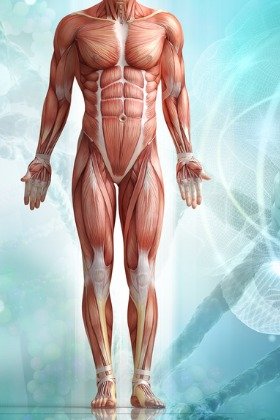Vitamin C and Collagen: What’s the Connection?
In a hurry? Click here to read the Article Summary...
You may have heard already about some of the fantastic health benefits of collagen – especially for joint and skin health. Did you know, though, that certain micronutrients can boost your own body’s natural ability to produce and effectively use collagen? It’s true, and one of the most powerful is good old vitamin C.
Read on to learn just why collagen and vitamin C make ideal partners when it comes to improving your health – and beauty – at any age!
Vitamin C and Collagen: How It Works
Collagen is a vital substance made of amino acids (mainly glycine and proline and sometimes others such as lysine) and accounts for the majority of all protein in the body. Its job is the formation of connective tissue in the body: cartilage in joints, internal tissue in organs, fibrous substances in bones, skin tissue, and so much more.
Vitamin C is a necessary substance for collagen production in the body. Without it, the body simply cannot produce it. It is needed for collagen storage and synthesis (i.e. how the body absorbs substances and works with other substances for vital functions).
Collagen forms the fibers that “hold together” the body. Likewise, vitamin C is responsible for “holding together” cells during collagen creation [1]. It is the catalyst for a process called hydroxylation (adding hydrogen and oxygen) within the amino acids proline and lysine.
From this, a precursor molecule is created called procollagen within the cell. All of these microscopic steps are needed for collagen to be eventually be created outside of the cell and then go on to eventually form the tissues that hold us all together and that we can see with the naked eye [2].
Not Just a “Vanity Vitamin”
Vitamin C is considered a “vanity vitamin” for what it can do for skin, hair, and nails. We will explore this in the next section. As you shall see, however, vitamin C and collagen work together for the health of many other functions in your body as well.
Vitamin C plays a key role in skin health mainly because it saturates both the dermis (middle) and the epidermis (top) levels of skin. It is transported to the skin through the bloodstream. Transport proteins tuned specifically to vitamin C are found in all layers of the skin, but especially in the epidermis.
The high amounts of vitamin C that exist in the first two layers of skin makes it a photoprotective substance. This means it has the ability to protect the body from too much UV light from the sun. It is an antioxidant as well, so it also reduces damage caused by free radicals. In the early 1980s, natural health pioneer Linus Pauling became the first to study the protective effects of vitamin C against carcinoma in mice [3].
And, of course, vitamin C is essential for collagen production and synthesized in the skin too. The right amount of vitamin C in your diet every day can help collagen do its job by keeping skin hydrated and helping to maintain its elasticity.
A French study published in the International Journal of Cosmetic Science back in 1998 found that an “Exogenous Vit C supply could thus contribute to the maintenance of optimal collagenic density in the dermis and locally strengthen the collagen network [4].” [Note: “Exogenous” refers to something from outside the body.]
Vitamin C and Gut Healing
Vitamin C also plays a vital role in helping form collagen networks in the body which form healthy tissues in internal organs, including the gut. Believe it or not, collagen assists in several functions in your digestive tract:
- It helps to balance stomach acid by its high glycine content.
- It helps to keep the digestive tract hydrated through a process called collagen glycation [5].
- It is thought to aid in the repairing of the stomach and intestines as type I and type III collagen are the “raw materials” for pretty much all connective tissues in the GI tract.Research has also linked higher levels of collagen with helping Irritable Bowel Syndrome (IBS), stomach ulcers, and healing Leaky Gut Syndrome. A study conducted by University Hospital Heraklion in Greece found that patients who had lower serum collagen levels had a higher incidence of IBS than those who had a level more in the normal range [6].While there have been no major studies yet as to the direct connection between collagen levels and Leaky Gut, it would make sense that boosting your collagen levels through increasing vitamin C, taking collagen supplements, or both would help “seal” the gut. After all, the “villi” in the gut (tiny microscopic folds in the intestinal wall) are made of collagen. Leaky Gut has long been connected with many disease conditions, especially autoimmune disorders [7].
Collagen and Vitamin C Supplements
Vitamin C is a water soluble vitamin which means it is not stored in the body. This means that if you want optimal health, you must feed your body plenty of it every day from the foods you consume. This is especially true if you are deficient in collagen as well.
Some foods that are high in vitamin C include:
- Citrus, including grapefruit, oranges, lemons, and limes,
- Strawberries,
- Papaya
- Broccoli
- Kale
- Tomatoes
- Peppers, such as jalapenos, serranos, and bell peppers
- Rose hips
- Acerola cherries
- Camu camu
Just like with collagen deficiency, when a person suffers from a chronic deficiency of vitamin C or if a person is older, supplementation can be very helpful. And even people consuming a real, whole foods diet can still end up deficient in many vitamins and minerals.
According to a study of 43 garden crops conducted by the University of Texas in Austin, nutrient content across the board has declined significantly in the last five decades [8]. Environmental pollution, soil-depleting farming practices, poor lifestyle habits like smoking, and boatloads of stress all lead to chronic deficiencies of many essential nutrients like vitamin C.
Fortunately, some quality collagen products include vitamin C in their formulas because of the intimate relationship between the two substances. This is the case with Organixx’s Clean Sourced Collagens blend, one of the purest, most well-researched collagen products on the market today.
Organixx Clean Sourced Collagens blend contains five types of collagen from four sources. What’s more, it’s combined with targeted nutrients such as zinc, vitamin C, and vitamin B6 which specifically enhance the bioavailability and potency of collagen. Clean Sourced Collagens is formulated from the ground up to enhance and support your body’s natural ability to heal and rebuild itself from the INSIDE out.

 Sources:
Sources:
Article Summary
Collagen is a vital substance made of amino acids that accounts for the majority of all protein in the body.
Its job is the formation of connective tissue in the body: cartilage in joints, internal tissue in organs, fibrous substances in bones, skin tissue, and so much more.
The bad news is that collagen production tends to wane with age. Vitamin C is a necessary substance for collagen production in the body. Without it, the body simply cannot produce it.
Both low collagen and low vitamin C input can lead to saggy skin, wrinkles, heart issues, Leaky Gut, and chronic disease.
Vitamin C is a water soluble vitamin which means it is not stored in the body. You must feed your body vitamin C daily from the foods you consume.
If you are taking a collagen supplement, ensure your body is getting enough vitamin C to benefit from it. Organixx Clean Sourced Collagens contains vitamin C from natural (not synthetic) sources.





Hi, does it come from eggshell, or eggshell membrane?
Thank you
Hi Summer, thanks for your question.
One of the five animal collagen sources of the Clean Sourced Collagens is Eggshell Membrane Collagen.
Eggshell membrane comes from chicken eggs and is the thin, clear, lining that sits between the eggshell and the egg white. It’s a natural source of types I, V, and X collagen, and is considered particularly beneficial for joint health.
Wishing you a lovely day!
do you have kosher collagen or collagen from no animal products
?
thank for your answer
Hi Irene, thank you for your question and interest.
Unfortunately, our Clean Sourced Collagens is not considered kosher and is made from 4 real food sources (beef, chicken, fish, eggshell).
Please know, that we do carry other products in our product line that are not only kosher but also vegan/vegetarian friendly.
Feel free to check them out via our online store here: https://shop.organixx.com/
Please let us know if there's anything else we can help you with.
We appreciate you being here with us and hope you have a lovely day!
This IS ALL MOST INTERESTING AND VERY IMPORTANT FOR ME ALTHOUGH I DO NOT KNOW WHAT COLEGAN AND AMINI ACIDS ARE AND WHTA PROLINE IS ; I AM GERMAN SPEAKING AND HAVE A PROBLEM WITH THESE COPLICATED WORDS, SORRY FOR WAISTING YOUR TIME, BUT IT ALL SOUNDS SO VERY COOD!!!!
Hi Udo, thank you for your question.
We would be more than happy to address this for you.
Collagen is a protein and the literal “glue” that holds your body together, but as you age your body produces less of it each year.
Collagen helps to construct the infrastructure of the musculoskeletal system, which provides your body with form, support, stability, and movement. It also ensures the cohesion, elasticity, and regeneration of your skin, which is directly related to how youthful you look.
Collagen is a vital substance made of amino acids (mainly glycine and proline and sometimes others such as lysine) and accounts for the majority of all protein in the body.
Its job is the formation of connective tissue in the body: cartilage in joints, internal tissue in organs, fibrous substances in bones, skin tissue, and so much more.
Amino acids are organic compounds that contain amine and carboxyl functional groups, along with a side chain specific to each amino acid.
Proline is an amino acid that is found in many proteins (especially collagen).
If you would like to learn more about our Clean Sourced Collagens, we encourage you to check out these links:
https://shop.organixx.com/products/clean-sourced-collagens
https://organixx.com/collagens
Also, we recently published the following article on collagen and why your body needs it that we'd love to share with you.
Feel free to check it out here: https://organixx.com/what-is-collagen/
We hope you find this information helpful and wish you a happy and healthy day!
Can I add your collagen product to my daily protein shake?
Hi Michael, thank you for your question.
Yes, you can absolutely add our Clean Sourced Collagens to your daily protein shake.
We also have many recipe ideas where you can add our Collagen supplement to. Feel free to check it out here and let us know what you think: https://organixx.com/ox-recipes.
Thank you so much for being here with us. We hope you have a lovely day!
Vad har Brauns epilator med Vitamin C att göra ????